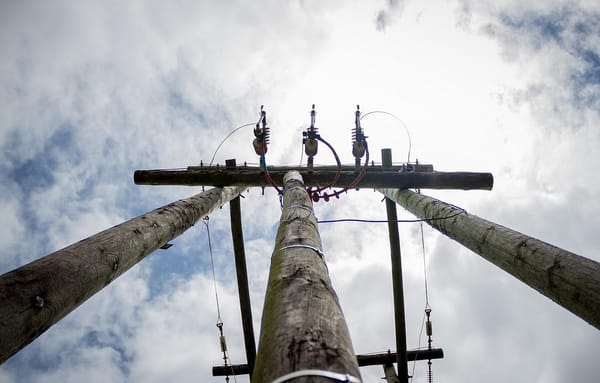Company fined $250K over electric shock to worker
A family-run billboard company in Queensland has been fined $250,000 after one of its workers received an electric shock from an overhead powerline.
The worker at Paradise Outdoor Building Company Pty Ltd had been changing the skin on an advertising sign that was within a three-metre exclusion zone of the powerline.
He was using a three-metre-long aluminium sail track to undertake the task when it came into contact with the powerline, causing him to receive a 33,000 volt shock.
The worker sustained multiple rib and spinal fractures, a punctured right lung and burns to both of his hands.
Mackay Magistrates Court found Paradise Outdoor Building Company guilty of breaching Queensland’s Electrical Safety Act 2002, for exposing its worker to a risk of death or serious injury.
While the top corner of the advertising sign was “just inside” the three-metre exclusion zone, at 2.6 metres, Magistrate Ron Muirhead found that the employer had only provided its employees with “limited training” in relation to exclusion zones that was “clearly inadequate and fell well short of compliance with the statutory obligation imposed under the Electrical Safety Act”.
“It must be made abundantly clear that heavy penalties will be imposed on businesses that fail in their statutory obligation to ensure the electrical safety of their workers and their obligation to take all necessary action to ensure that their equipment, structures and workers do not enter into exclusions zone for high voltage powerlines,” Magistrate Muirhead said.
Paradise Outdoor Building Company was convicted and fined $250,000 and ordered to pay $7,475.38 in costs. The company has appealed the conviction.
Victoria Thomson, head of Queensland’s Electrical Safety Office said that the Paradise Outdoor Building Company could have avoided the incident if it had contacted the power company.
“Ergon Energy actively encourages businesses to call for advice if there are concerns powerlines could pose a threat to their workers and specifically urges billboard companies to respect the 3m exclusion zone,” she said.
“In this instance, the hazard could have been negated if The Paradise Outdoor Building Company had asked Ergon Energy to raise the overhead powerline or ensured neither its workers nor their equipment came within the powerline’s exclusion zone.
“After the incident, the company paid $4,500 to have a higher pole installed, lifting the powerline three metres higher – this could have been done much earlier.”
Ms Thomson said that employers conducting work near powerlines need to do the following:
- carry out a site-specific risk assessment;
- develop a safe system of work before starting;
- inform workers and contractors about electrical safety; and
- avoid entering into exclusion zones.
“Overhead and underground powerlines can be identified by consulting maps or talking to the property owner and the electrical entity,” she said.
“Ergon Energy even has an online tool which makes this check quicker and simpler than it’s ever been.
“Without a doubt, the most effective way to control the risk from powerlines is to de-energise or move the line while the work’s being done.
“If that can’t happen then you must ensure your workers know where powerlines are and keep well clear of them – which means they also need to know the height and reach of any equipment they’re going to be using.
“You can also speak to Ergon or Energex about painting power poles or having them install markers or flags on the powerlines.
“Installing warning signs at the top of the billboard to remind workers and contractors of the proximity of powerlines is also a good idea.”
For PCBUs in Queensland, Ergon Energy’s new powerline safety planning tool which is being trialled can be found at lookupandlive.com.au.
From the experts behind the Health & Safety Handbook, the Bulletin brings you the latest work health and safety news, legal updates, case law and practical advice straight to your inbox every week.

